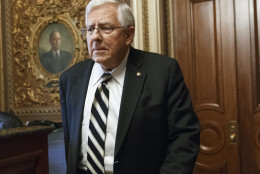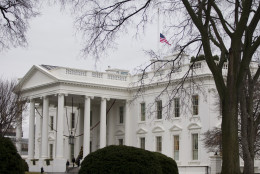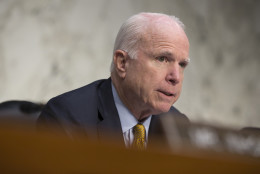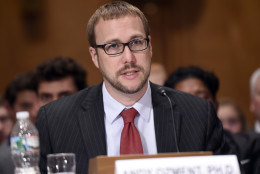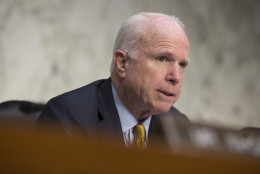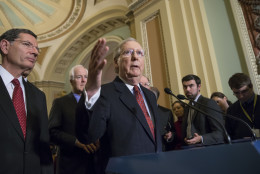Tim Kaine
-
President Donald Trump's long-promised hiring freeze on the entire federal civilian workforce will wind up hurting veterans hiring and the IRS' ability to go after tax cheats, according to the senator who ran against him in the election.
January 24, 2017 -
The National Active and Retired Federal Employees Association released its voting scorecard for the 114th Congress. The scorecard includes a breakdown of votes from each congressional member and how they stacked up to NARFE's position on various legislation impacting the federal workforce.
October 03, 2016 -
Sen. Mike Enzi is leading the charge for budget reform as Congress heads into the waning days of fiscal 2016 still looking for agreement on a spending bill.
September 19, 2016 -
Members of the Clinton-Kaine and Trump-Pence transition teams met with Obama administration officials on Aug. 25 to discuss a host of topics, including an overview of agency planning efforts, the General Services Administration-led transition team support, emergency preparedness, personnel onboarding processes and upcoming milestones.
August 26, 2016 -
Sen. Tim Kaine (D-Va.) wants DoD to recommend to Congress what bases need to be closed and let lawmakers vote on the closures individually.
July 22, 2016 -
The Senate left hundreds of amendments on the floor when it passed the defense authorization bill. Federal News Radio takes a look at some of the more interesting ones.
June 15, 2016 -
A senator representing one of the largest concentrations of federal workers says he'll see what happens when Sen. John McCain's (R-Ariz.) amendment hits the Senate floor.
May 30, 2016 -
A top Department of Homeland Security official thinks 2017 is the big year for cybersecurity investment.
May 24, 2016 -
Defense companies are expected to increase hiring for the first time in five years, but that could create problems for the Defense Department's recruiting initiatives.
February 16, 2016 -
Senate Armed Services Committee Chairman John McCain said the administration's recently released cyber deterrence policy is "thin" and lacks new information about plans to stop cyber attacks.
January 14, 2016 -
The Obama administration will use law enforcement and even military force to deter cyber attacks in new policy.
December 29, 2015 -
While a continuing resolution seems likely in the waning days of the short-term spending bill the government is currently operating under, federal employees once again have found themselves looking over their shoulders for any sign of a shutdown.
December 10, 2015 -
UPDATED: A key Senate committee approved an amendment today to give federal employees no less than 10 years of identity and credit-monitoring services and $5 million in liability protection for related damages.
July 22, 2015 -
Feds participating in the Federal Flexible Spending Account Program will now be able to rollover up to $500 from one year to the next in unspent funds from their limited expense and health care flexible spending accounts.
September 04, 2014 -
Federal News Radio's DoD Reporter Jared Serbu offers news tidbits and buzz about the Defense Department.
March 10, 2014



